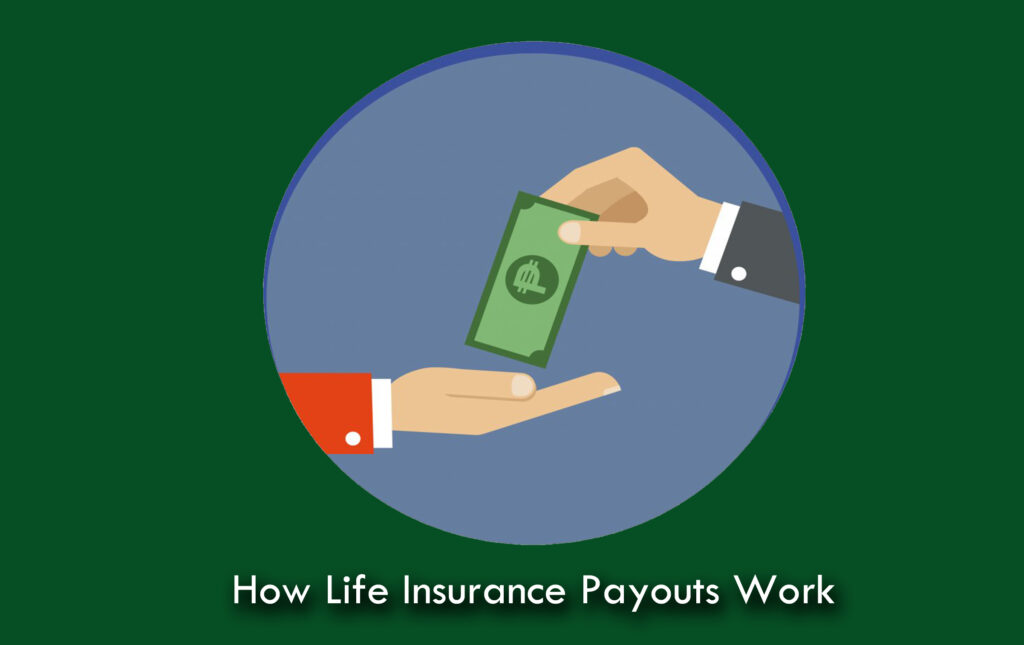How do life insurance payouts work? Life insurance payouts are designed to provide financial support to your loved ones after your passing.

However, knowing and understanding how these payouts work can help ensure your family receives the benefits they need.
Hence, in this article, we’ll explore how life insurance payouts work, so you know what to expect when the time comes.
What Is A Life Insurance Payout?
A life insurance payout is the amount of money that is given to the beneficiaries of a life insurance policy when the policyholder passes away.
This payout is meant to provide financial support to the loved ones of the deceased, helping with expenses like funeral costs, debts, and ongoing living expenses.
The payout amount also depends on the coverage chosen by the policyholder, and it is usually tax-free for the beneficiaries.
However, it is important to note that while life insurance payouts are a death benefit given when the policyholder passes, it is quite different in the case of suicide.
The insurance company won’t pay the beneficiaries if the cause of the death of the policyholder is suicide.
How Much Does Life Insurance Payout?
The amount a life insurance policy pays out depends on the coverage selected by the policyholder.
However, this is usually outlined in the policy as the death benefit. But common coverage amounts range from $50,000 to several million dollars, depending on the policy.
Furthermore, factors like the type of policy (term life or whole life) and the premiums paid also affect the payout amount.
And the payout is usually tax-free for the beneficiaries and is intended to cover funeral costs, debts, and provide financial support for the surviving family members.
Life Insurance Payout Options
Life insurance payouts offer several options, allowing beneficiaries to choose how they want to receive the death benefit. Common payout options include:
Lump-Sum Payment
This is the most common option, where the beneficiary receives the full death benefit in one single payment. It provides immediate access to the funds. Also, it is often used to cover outstanding bills and end-of-life or funeral expenses.
Installment Payments
Instead of a lump sum, the beneficiary receives payments over a set period, such as monthly or annually, till the money finishes. This can help manage the funds more steadily.
Retained Asset Account
This is an option some insurance companies offer for life insurance payouts. Instead of receiving a lump sum, the payout is placed in an account that works like a checking account.
The money in the account earns interest, and you can withdraw funds whenever you need them. The initial payout is tax-free, but any interest you earn on the balance may be subject to taxes.
This option provides flexibility, allowing you to access the money as needed while earning some interest.
Each option has its pros and cons, so it’s important for beneficiaries to carefully consider their financial needs before choosing a payout method.
How Is Life Insurance Paid Out?
The way life insurance is paid out depends on the beneficiaries listed in the policy. Here’s an overview of how the process works:
One Beneficiary
If only one person or organization is named as the beneficiary, they will receive the entire payout.
Multiple Beneficiaries
If there are multiple beneficiaries, you must specify how the payout will be divided. You can assign a percentage or dollar amount for each beneficiary.
Contingent Beneficiary
A contingent beneficiary can only claim the payout if the primary beneficiaries are no longer alive. If there are multiple contingent beneficiaries, they will each receive the specified portion.
No Beneficiary
If no beneficiary is named, the death benefit will go to the policyholder’s estate. It will then go through the probate process, where it will be distributed to creditors or heirs.
How Long Does It Take For A Beneficiary To Receive An Insurance Payout?
Usually, beneficiaries receive the payout within 30 to 60 days after filing a claim. However, delays can happen if:
- The policy has lapsed.
- There are issues with the cause of death (e.g., suicide).
- The paperwork is incorrect.
- There is suspected fraud.
The process may take longer if the insurer needs to investigate the claim, especially if the policyholder passed away within the first couple of years of purchasing the policy.
Are Life Insurance Payouts Taxable?
Generally, life insurance payouts are not taxable. The death benefit is not subject to federal income tax. However, any interest earned on the payout or funds in a retained asset account may be taxable. If the policyholder had an outstanding loan against the policy, the amount owed will be deducted from the payout.
In some cases, if the policy was transferred for value before the policyholder’s death, the payout could be taxable. For specific tax concerns, beneficiaries should consult with a tax professional.



